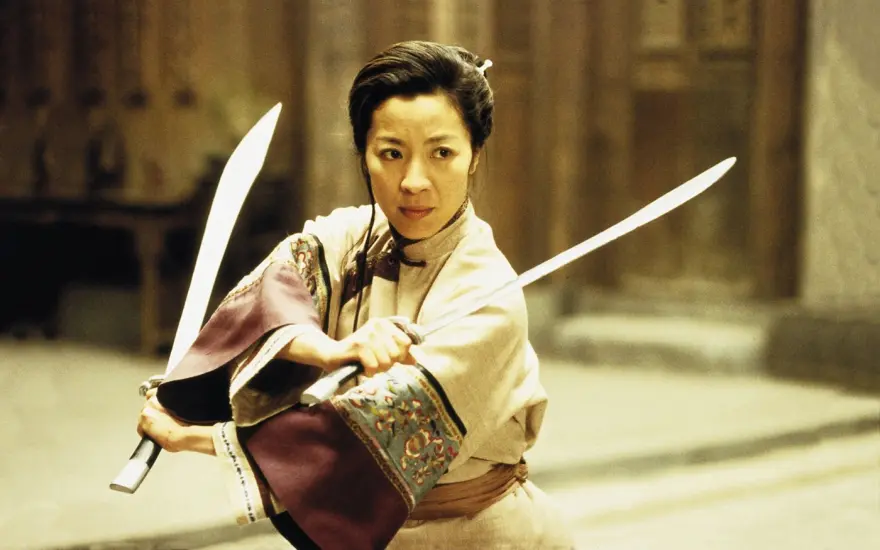Women have played an essential role in the world of Kung Fu cinema, often breaking barriers and setting new standards within the genre. In this blog, we will explore the lives and contributions of prominent women Kung Fu actors, their unique styles, and how they have impacted the genre as a whole. From classic films to modern-day showcases, their talent has shined brightly, proving that Kung Fu is not just a male-dominated arena.
The Origins of Women in Kung Fu Cinema
The history of women in Kung Fu cinema is rich and varied, with early films showcasing women’s martial arts prowess alongside their male counterparts. In traditional societies, women often faced restrictions, but the silver screen provided a platform for them to express their strength and skills. One of the groundbreaking figures in the 1970s was Angela Mao, who gained recognition for her fierce performances in films like ‘Hapkido.’
These early representations not only entertained audiences but also began to challenge conventional gender roles. Women practitioners were portrayed as equal fighters, capable of skillfully defending themselves and taking on formidable opponents. This shift began to reshape public perceptions and opened the door for future female actors to step into the spotlight.
As the genre evolved, so did the portrayal of women in these narratives. From powerful warriors to cunning strategists, female characters started to become integral to the plotlines. This change can be traced back to the rising feminist movements of the time, which encouraged more nuanced and diverse depictions of women in film.
Trailblazers: Iconic Women Kung Fu Actors
In the landscape of Kung Fu cinema, several women have emerged as true trailblazers. Actresses like Michelle Yeoh and Donnie Yen’s co-star, the remarkable Ahn Ji Ho, have pushed the limits of the genre while captivating audiences with their talent. Michelle Yeoh’s standout role in ‘Crouching Tiger, Hidden Dragon’ showcased her versatility as an actress capable of performing complex stunts with grace.
Yeoh’s success opened the door for more serious roles for women in Kung Fu films. Following in her footsteps, actresses such as Yuen Qiu, who gained fame in ‘Kung Fu Hustle,’ brought their unique flair to the genre. Their achievements prove that women can not only excel in martial arts but can also command the screen with a powerful presence, making them icons in a predominantly male industry.
Another influential figure is Jet Li’s co-star, emerging actress, and stunt performer, Zhang Ziyi, who has blended beauty with unbeatable martial arts skills in films such as ‘Hero.’ These women have not only shown their incredible talent but have also fostered a sense of community within the industry. Their dedication and commitment continue to inspire many aspiring actresses and kung fu actors alike.
Breaking Stereotypes: The Evolution of Female Roles in Kung Fu Films
The evolution of female roles in Kung Fu films mirrors broader societal changes regarding gender and equality. Initially, women were often portrayed as damsels in distress, but over time, they transitioned into formidable protagonists capable of taking center stage. By the late 1990s and early 2000s, the narrative shifted, and we saw the emergence of empowered female characters who could stand their ground against the strongest foes.
Films like ‘The Matrix’ introduced characters such as Trinity, played by Carrie-Anne Moss, who embodied strength, intelligence, and agility. Similarly, movies featuring strong female leads like ‘Charlie’s Angels’ opened pathways for women in action films. This newfound representation in Kung Fu cinema showcased the potential of female actors and challenged the stereotypes that had previously limited their roles.
The gradual unveiling of women’s martial accomplishments in Kung Fu films has also served as a catalyst for gender equality within the industry. By creating characters that audiences can relate to or admire, filmmakers make strides toward breaking preconceived notions, paving the way for more diverse storytelling. Today, women are not merely side characters; they are the core of the narrative, filling roles that demand complexity and depth.
Modern Influences: New Generations of Women Kung Fu Actors
In the vibrant landscape of modern Kung Fu cinema, new generations of women actors are redefining what it means to be a martial artist on screen. Young actresses like Jenna Ortega and Crazy Rich Asians’ Constance Wu are stepping into the spotlight, showcasing their skills while also emphasizing emotional depth in their performances. With the rise of social media, they also have the opportunity to connect with fans directly, sharing their training and techniques in engaging ways.
The emergence of platforms like YouTube has allowed these actors to demonstrate their talents beyond film, reaching a global audience interested in martial arts. They inspire many young women to pursue their passions, displaying authenticity while also grounding their roles in reality, thereby challenging the often glorified portrayals of female fighters in earlier films. The impact of their journey resonates deeply within the communities they represent.
Furthermore, films such as ‘Birds of Prey’ have highlighted the strength of female friendships in action settings, introducing multifaceted characters that go beyond conventional portrayals of women in Hollywood. Their stories reflect the complexities of real lives, resonating with a wide audience and proving that women can excel and support one another in the competitive realm of Kung Fu cinema.
Cultural Impact: How Women Kung Fu Actors Changed Perceptions
The cultural impact of women Kung Fu actors extends far beyond just entertainment; it challenges societal norms and encourages discussions on gender equality. As these actors continue to break barriers, they showcase a blend of femininity and strength that resonates with audiences worldwide. This cultural dialogue is vital, as it empowers women to embrace their own aspirations, regardless of the limitations often imposed by society.
Through their roles, these formidable actresses encourage conversations about body image, confidence, and resilience. By dispelling stereotypes regarding what women can achieve, they not only promote self-acceptance but also showcase a broader range of human experiences. The visibility granted to women Kung Fu actors paves the way for diverse storytelling that embraces different cultures and backgrounds.
In doing so, they allow audiences to experience powerful narratives that go beyond the action scenes. The emotional themes interwoven with their strength forge connections with viewers, cultivating a loyal fanbase that appreciates this balance. As we witness more groundbreaking films that highlight women’s contributions to Kung Fu, we recognize that their influence continues to shape new standards of excellence within the genre.
Training and Techniques: The Unique Styles of Women in Kung Fu
The training techniques employed by women Kung Fu actors often embody a unique combination of strength and grace. Many of these actresses embrace rigorous training regimens that focus not only on physical fitness but also on mastering various martial arts styles. By immersing themselves in disciplines like Wing Chun, Tai Chi, and Chinese kickboxing, they emphasize the rich cultural heritage intertwined with martial arts.
Unlike traditional portrayals that favor brute strength, many women Kung Fu actors emphasize agility and technique, allowing them to outmaneuver larger opponents. Their ability to blend traditional martial arts techniques with modern aesthetics does not just reaffirm their prowess but also inspires future generations of martial artists. Training methods that include cardio, flexibility exercises, and combat drills set a standard for those aspiring to enter the field.
The use of choreography in their training is an art form in itself. Many actresses take the time to study not only combat movements but also the storytelling elements that come with them. Their performances become a dance of sorts, expressed through powerful strikes and elegant maneuvers. This synergy between martial prowess and artistic expression highlights the evolving nature of Kung Fu cinema.
Celebrating the Legacy of Women Kung Fu Actors
The influence of women in Kung Fu films cannot be overstated. As we look back at their contributions, it’s clear that these remarkable actresses have not only enhanced the genre but have also inspired countless others to pursue their passions, regardless of societal norms. By championing female empowerment and showcasing diverse narratives, they continue to pave the way for future generations of Kung Fu actors. Their legacies will undoubtedly inspire a new wave of talent in this vibrant genre.


